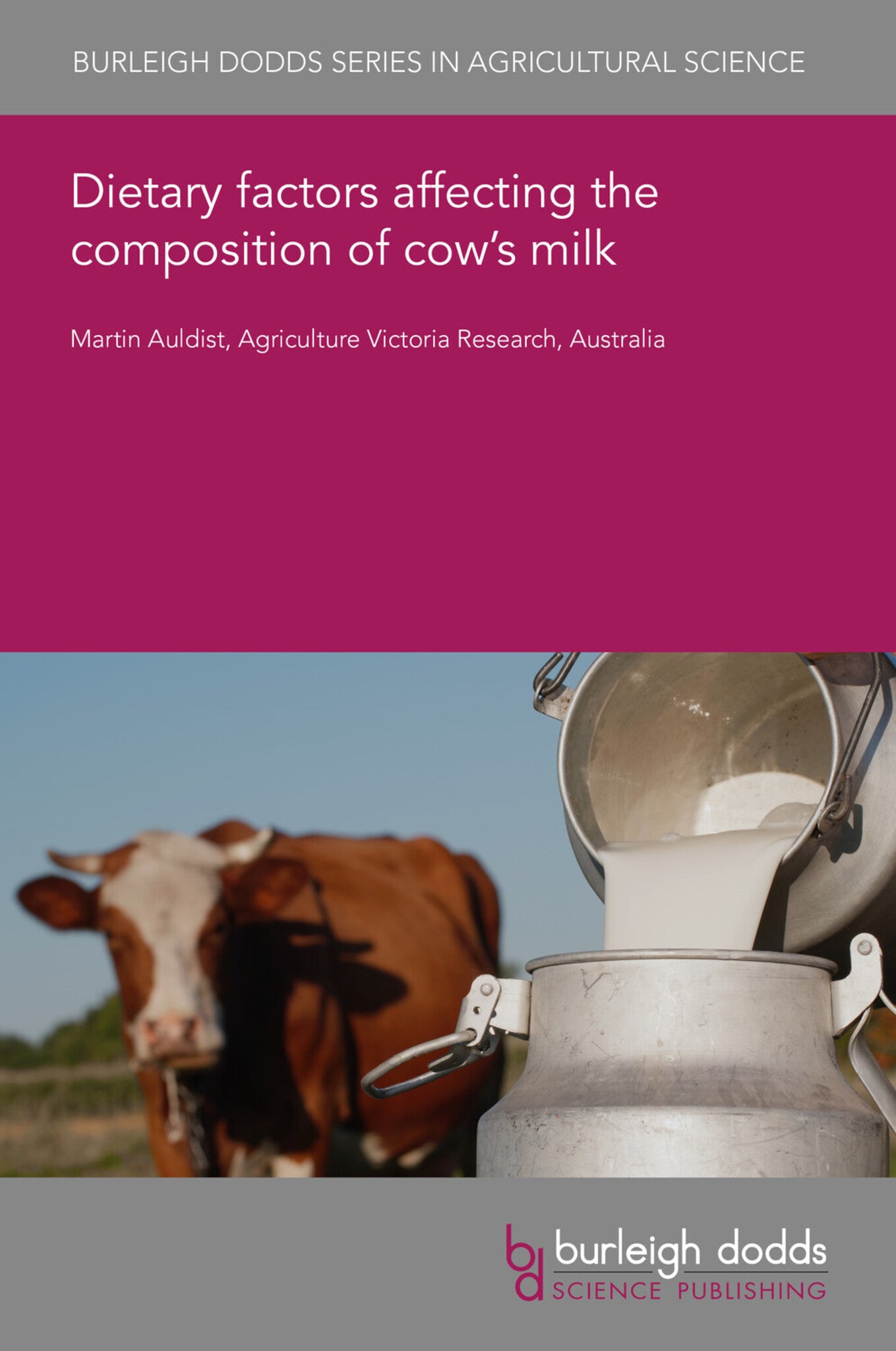We're sorry. An error has occurred
Please cancel or retry.
Dietary factors affecting the composition of cow’s milk
Regular price
£25.00
Sale price
£25.00
Regular price
£25.00
Unit price
/
per
Sale
Sold out
Re-stocking soon
The ability to change milk composition via cow diet can lead to increases in the yield and functional properties of dairy products. Inducing such changes via diet can lead to more rapid and reversi...
Read More

Some error occured while loading the Quick View. Please close the Quick View and try reloading the page.
Couldn't load pickup availability
- Format:
-
14 March 2022

The ability to change milk composition via cow diet can lead to increases in the yield and functional properties of dairy products. Inducing such changes via diet can lead to more rapid and reversible changes to milk composition than other contributing factors . However, some components are more readily changed than others. Milk fat, for example, is readily altered by changing the forage:concentrate ratio or by feeding oilseeds containing high levels of polyunsaturated fatty acids. Such changes can improve the yields, functional properties and perceived healthiness of butter and other products. Similarly, the mineral composition can be altered by supplementation, which has implications for product functionality and human health. Unfortunately alterations of the amount and type of milk protein are difficult to achieve via dietary manipulation. Maintaining an adequate supply of metabolisable energy to ensure maximum protein concentrations is probably the only reliable strategy in this regard.

Price: £25.00
Publisher: Burleigh Dodds Science Publishing
Imprint: Burleigh Dodds Science Publishing
Series: Burleigh Dodds Series in Agricultural Science
Publication Date:
14 March 2022
ISBN: 9781801464451
Format: eBook
BISACs:
TECHNOLOGY & ENGINEERING / Agriculture / Animal Husbandry, Dairy farming, TECHNOLOGY & ENGINEERING / Agriculture / Sustainable Agriculture, Sustainable agriculture, Animal husbandry

1 Introduction 2 Milk fat 3 Milk protein 4 Lactose 5 Minerals 6 Conclusion 7 Future trends 8 Where to look for further information 9 References



